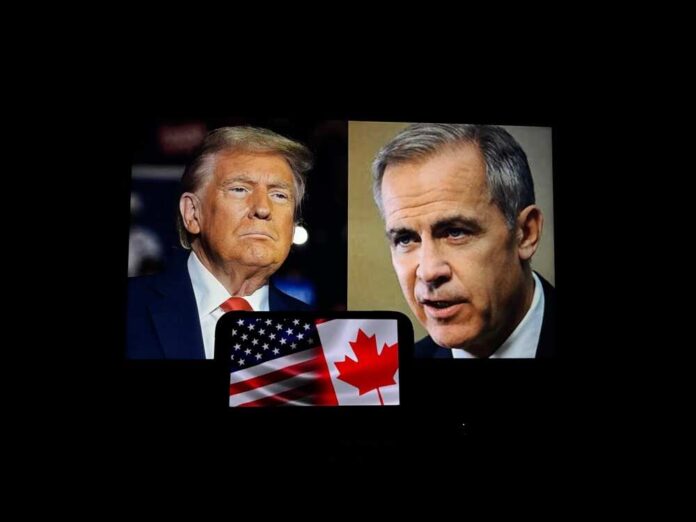
Facing a new era of U.S.-Canada trade relations, Prime Minister Mark Carney works amidst Trump’s tariffs, altering cross-border dynamics.
At a Glance
- Canadian Prime Minister Mark Carney redefines U.S.-Canada economic ties due to new tariffs.
- 25% tariff on car imports disrupts global supply chains.
- Carney promises retaliation with limited impact on Canada.
- Canada convenes leaders to discuss strategic responses.
Carney’s Trade Policy Overhaul
Prime Minister Mark Carney announced the termination of long-standing economic and security ties with the United States, prompted by President Trump’s newest tariffs on imported cars and parts. This bold stance marks the beginning of a significant overhaul of the North American trade landscape. The 25% tariff, effective April 3, poses a threat to global supply chains, increasing consumer prices across borders.
In response, Carney condemned the tariffs as unjustified and violating existing trade agreements. He assured Canadians of retaliatory measures that aim to maximize impact on the U.S., while minimizing repercussions within Canada. Carney’s initiative to bring together provincial premiers and business leaders underscores the collaborative effort to recalibrate Canada’s trade strategies.
A Global Reaction
Globally, leaders are decrying the tariffs. European and Asian leaders, including Germany’s Chancellor Scholz and France’s President Macron, have criticized the economic ramifications. French President Emmanuel Macron noted, “They disrupt value chains, create an inflationary effect, and destroy jobs. So it’s not good for the US or European economies.”
Additionally, countries like Poland, Japan, and South Korea have echoed similar sentiments, anticipating broad economic consequences from reduced trade fluidity. The tariffs have also become a focal point in Canada’s upcoming general election, dividing opinions among political leaders.
Political and Economic Strategies
Mark Carney is strategically keeping specific retaliatory details confidential until a clearer picture of Trump’s next move emerges. Trump has threatened even larger tariffs if countries collaborate against U.S. economic interests. Amid these tensions, Carney has emphasized rekindling Canada’s domestic economy, focusing on reducing bureaucratic obstacles and encouraging investment.
As the auto sector braces for impact, the upcoming dialogues may well determine the course for economic policy and bilateral relationships in the region. Carney’s call for a strong government mandate further emphasizes Canada’s commitment to addressing these trade challenges head on.

















